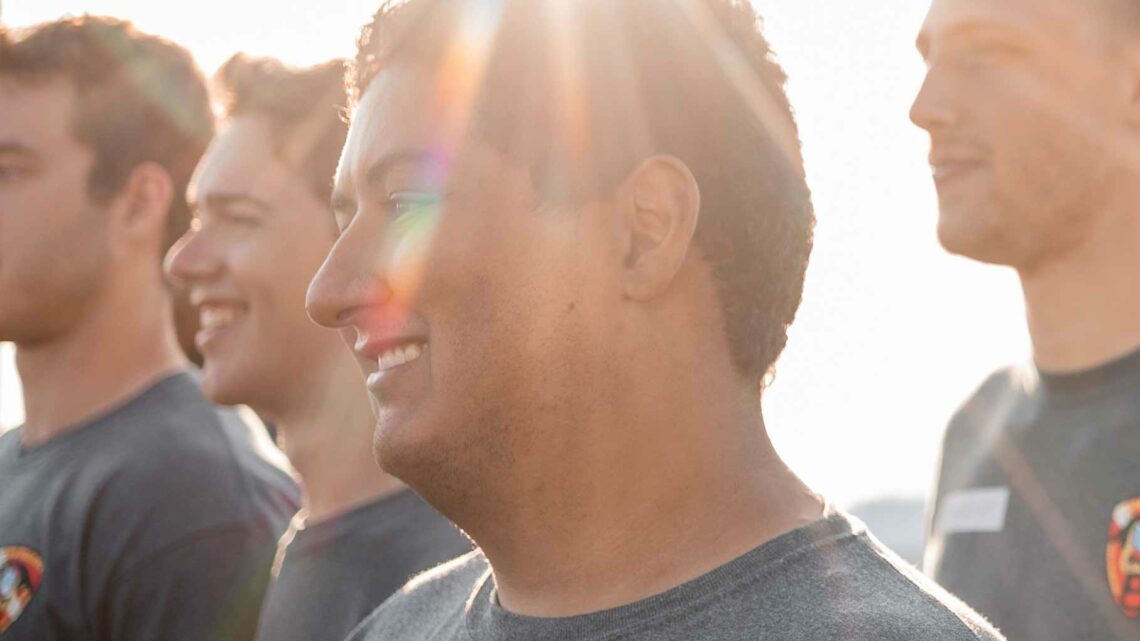“I never felt alive until I started working in healthcare,” said 2022 international rescue and relief graduate Josh Reyes-Meiring.
Reyes-Meiring was interested in science and medicine, but until he started in the IRR program, he had no idea how exciting they could be. Now, he’s back at Union — this time as a member of the first cohort earning a Master of Public Health (MPH) degree.
“I chose IRR to learn the things I needed to learn without always being in a classroom staring at whiteboards and presentations,” he said. “I got genuine opportunities to help people and experiences I never would have otherwise. Public health gives me an avenue to further the skills I learned and more opportunities to help my community.”
Union’s new Master of Public Health degree is a two-year program designed to prepare students to improve the health of people and their communities. “Public health is about solving problems,” said Reyes-Meiring. “It’s about preparing for serious issues that are going to massively impact communities and developing solutions to them.”
In the final semester of the MPH program, students complete an applied practice experience: a practicum in a public health setting designed to teach practical skills and benefit the community. Reyes-Meiring has a head start on gathering practical experiences; he used the skills he learned in the IRR program to serve his hometown of Cheyenne, Wyo. during the biggest public health crisis of the last century.
“After I got my EMT license, I got to work in an emergency room during COVID in a state that didn’t really care about the virus,” he said. “As you can imagine, there was quite the public information campaign happening, and I saw firsthand how it was implemented and how the hospital treated misinformation.”
After graduating, Reyes-Meiring returned to Cheyenne to work as a phlebotomist. Because he had learned many of the skills needed during his time at Union, his supervisors had him hit the ground running. “I got to see all different kinds of people while I was working there. I learned hands-on how medical professionals work with patients of various backgrounds and about health issues that affect entire communities.”
His experiences as a phlebotomist fueled Reyes-Meiring’s desire to continue developing his career in healthcare. “I had one lady I drew blood from give me a nice card because she said it was the most painless blood draw she’d ever had,” he said. “I’ve been able to be with families in their darkest, most vulnerable moments and show them Christian kindness. I helped save children’s lives after a bus crash, worked with a baby bitten by a rattlesnake, and just talked with a child in the psych ward all night. The best part of working in healthcare is knowing you’ve made small but meaningful impacts on people’s lives.”
When Reyes-Meiring told the clinic where he worked that he was returning to Union, his decision received a great deal of support. He said, “I had multiple doctors there come up to me and tell me, ‘I wish I had gotten an MPH degree before I went to medical school.’”
A master of public health can lead to many careers, including epidemiologist, health services manager and biostatistician. Reyes-Meiring is exploring what a future in public health will mean for him. “I’d like to do something where I can go overseas or work in disaster response,” he said.
“This degree is for people who enjoy the idea of impacting the communities they serve. It has a broader focus than just one patient and allows the full impact of providers to be seen throughout their work. It’s perfect for the problem solvers who wish to prevent incidents from occurring instead of picking up the pieces afterward. I can’t wait to see how this program grows.”
To learn more about earning a Master of Public Health at Union College and how students can combine it with biomedical science or international rescue and relief undergraduate degrees or a physician assistant master’s degree and finish one year faster, please visit ucollege.edu/publichealth








